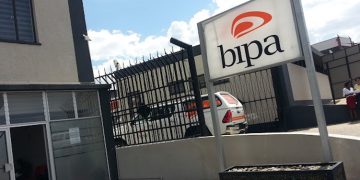
The Institute for Public Policy Research (IPPR) has ranked Swakopmund, Walvis Bay and Windhoek Municipalities as the best performing local authorities in the country.
The same study also revealed that Erongo, Kavango West, Kunene, Oshana and Oshikoto regional councils were among the best performing regional councils in the country.
According to the IPPR report released on Thursday, //Kharas Regional Council, Karasburg Town Council, Katima Mulilo, Outapi, Rundu Town Councils, Mariental and Okahandja Municipalities were ranked as the worst performing local authorities and regional councils in the country.
Each of the 32 Local and Regional Councils selected for the study were assessed based on a 10 point criteria: Participatory Democracy, Fiscal Transparency, Service Delivery, Online Presence/Website, Online Presence/Social Media, E-Governance, OAG Reports, Activity Reports, Incidences of Corruption, Mismanagement and/or Gross Misconduct and Community Presence/Access to Information.
Based on their performances in each of these areas, Councils were categorised into best, higher-average, lower-average and worst levels of transparent and accountable governance.
The findings focus on municipalities and larger town councils where institutional capacities are relatively more developed.
IPPR’s Research Associate Kitty Mcgirr recommended that local and regional governments in Namibia implement budgeting as a Public Exercise after recurring criticism raised by members of the public against local and regional governments is their lack of fiscal transparency.
She said these criticisms are often vindicated by reports of corrupt dealings on the part of some elected representatives.
Thus, “councils can put these claims to bed by fostering a culture of accountable spending.This could include organising and effectively advertising public budget consultations in as many wards/ constituencies as is feasible and making targeted appeals for input to local civil society groups and the private sector. When completed, full annual budget reports could be posted across all online platforms accompanied by summary presentations of key budgetary priorities to ensure that the data is accessible to everyone,” she said.
The study also recommended building online presence, auditing training, diversifying revenue streams and improving access to information.
In terms of diversifying revenue streams,Mcgirr said a commonality binding many LAs and RCs in the wake of the pandemic is their considerable debts owed to water and electricity suppliers for unpaid utility bills.
She said these dire financial straits largely stem from the Minister of Urban and Rural Development’s 2020 directive that all residents be given access to water irrespective of their ability to pay for it to fend off the spread of COVID-19.
“Bills incurred for this blanket relief measure were allegedly supposed to be paid for by GRN in due course, but this commitment has since been rescinded. Consequently, local authorities are experiencing increasingly more frequent water cut offs due to their inability to purchase water supplies while also honouring debt repayments,” she said.
She then notes that, “this unfavourable situation makes it all the more imperative that councils work to diversify their revenue streams by partnering with GRN and civil society on income-generating development projects; formulating land rental agreements with private sector actors; addressing loopholes in their financial systems and cracking down on illegal water and electricity connections.”
Mcgirr further said these sorts of initiatives are especially necessary in light of the apparent dormancy of the Trust Fund for Regional Development and Equity which appears to have been entirely unresponsive to various councils’ attempts to gain access to funds during the two-year period.













